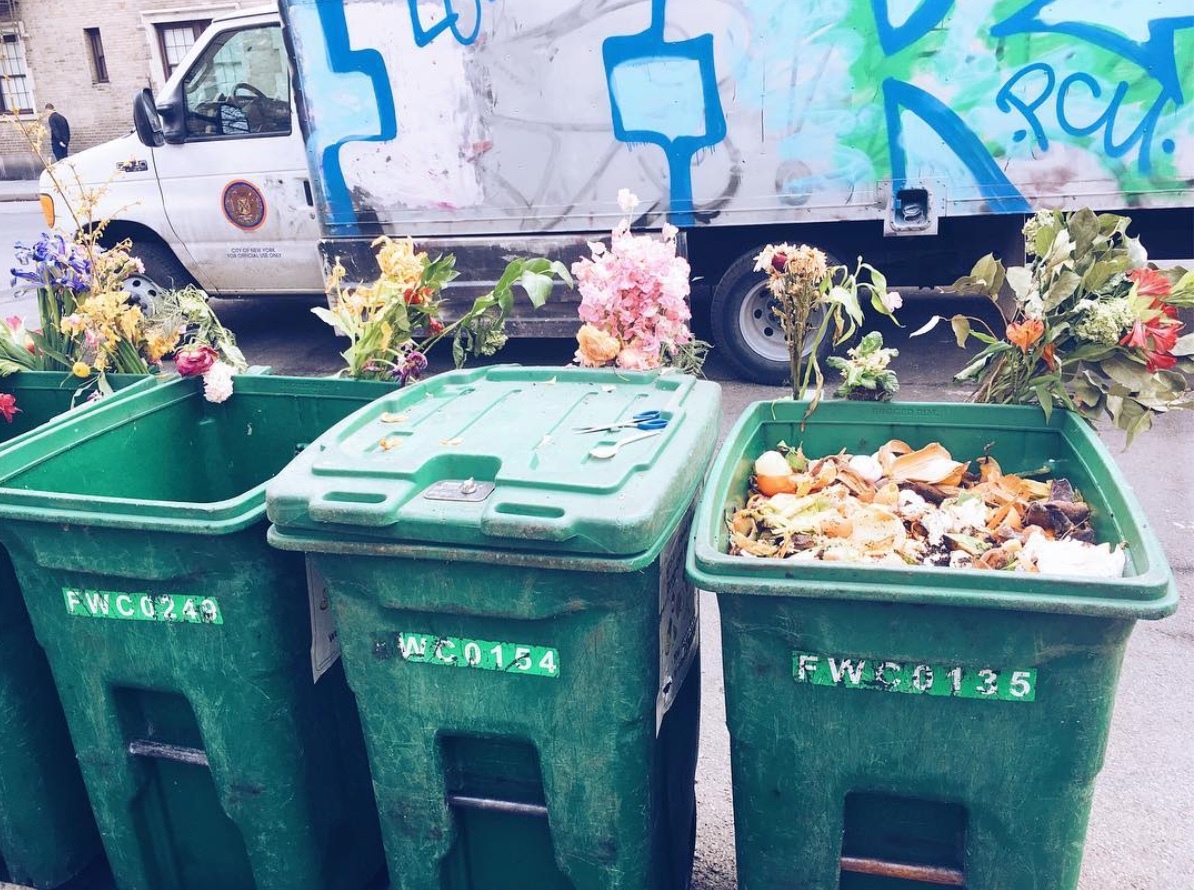The Sustainable Development Goals are a vision of what we, as a collective humanity, must aim for in the next 13 years. They are encompassing and holistic – even the first sentence of the Preamble mentions the SDG Agenda as a plan for, “people, planet and prosperity.” The question for social businesses then becomes: how can we combine aspects from these three major categories into solutions that can help solve our most entrenched problems?
Social businesses, or those created and designed to address social problems, stand on firm ground to take on this multiplicity. They aim to alter systems, getting to the root of the problem rather than simply dealing with the outcome. Progress is judged on increasing inclusiveness, connectivity, equity, prudence, and security for both people and the planet. In the same way as the SDGs, they are founded to challenge the status quo via creative, transformative engagement.
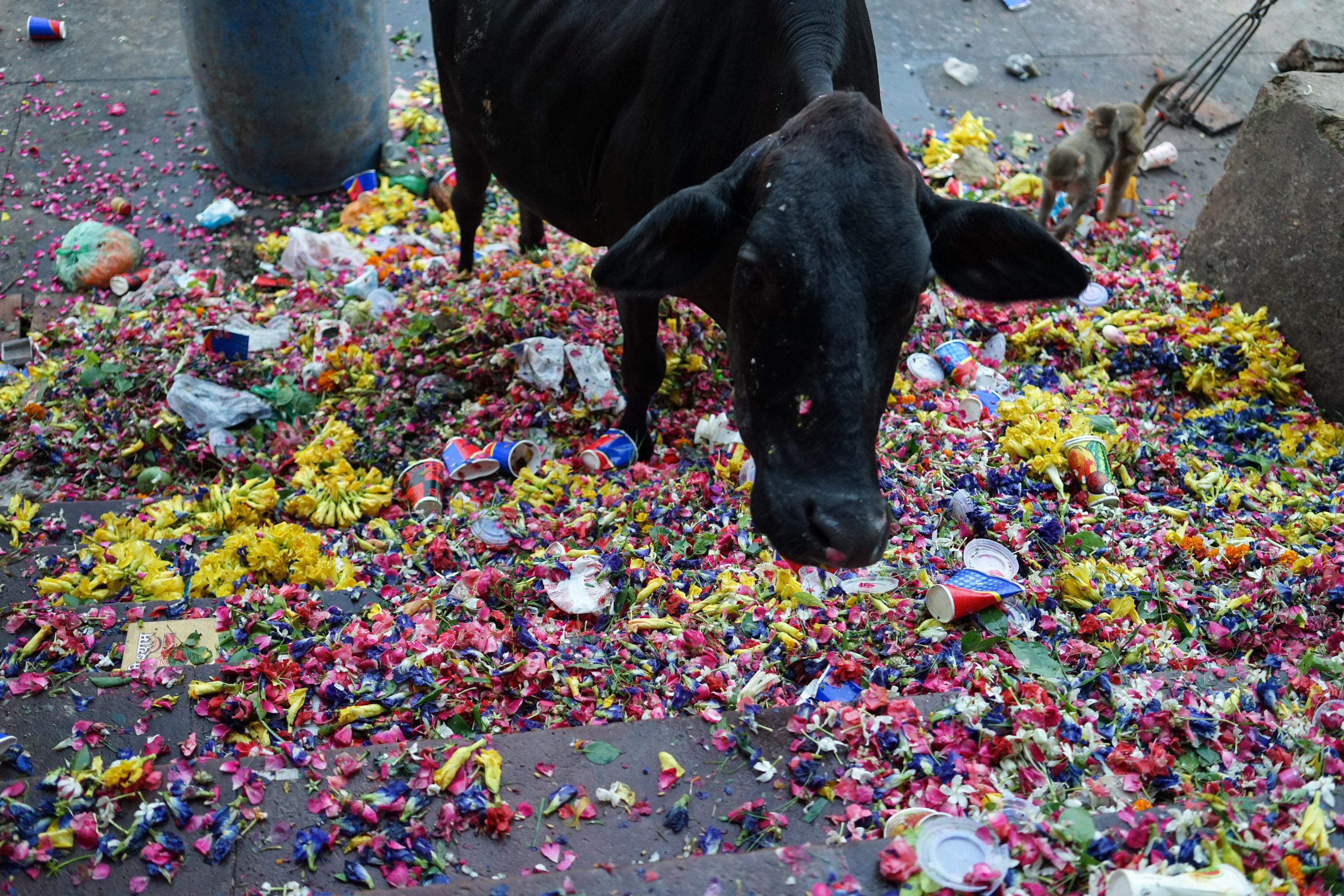
Photo Credit: Helpusgreen
In India, where the social impact sector has been growing quickly, young entrepreneurs are at the forefront of innovation and impact. They have the capacity to tackle multiple aims simultaneously, often finding experimental ways to be socially, environmentally and culturally responsible. Helpusgreen is one such enterprise. Founded by Ankit Agarwal and Karan Rastogi, their goal is to repurpose the monumental ‘temple-waste’, while at the same time, supporting manual scavenger women.
Ankit and Karan’s endeavour began in Kanpur, India: a center of industry in Uttar Pradesh and home to nearly three million people. Tanneries are abundant in this city situated midway along Ganga’s length; four hundred line the banks in total. It is often industrial runoff that gets the blame for Ganga’s pollution, but there is another little-known culprit: flowers. Floral waste is estimated to account for 16% of the total river pollutant and amasses by the tons per day.
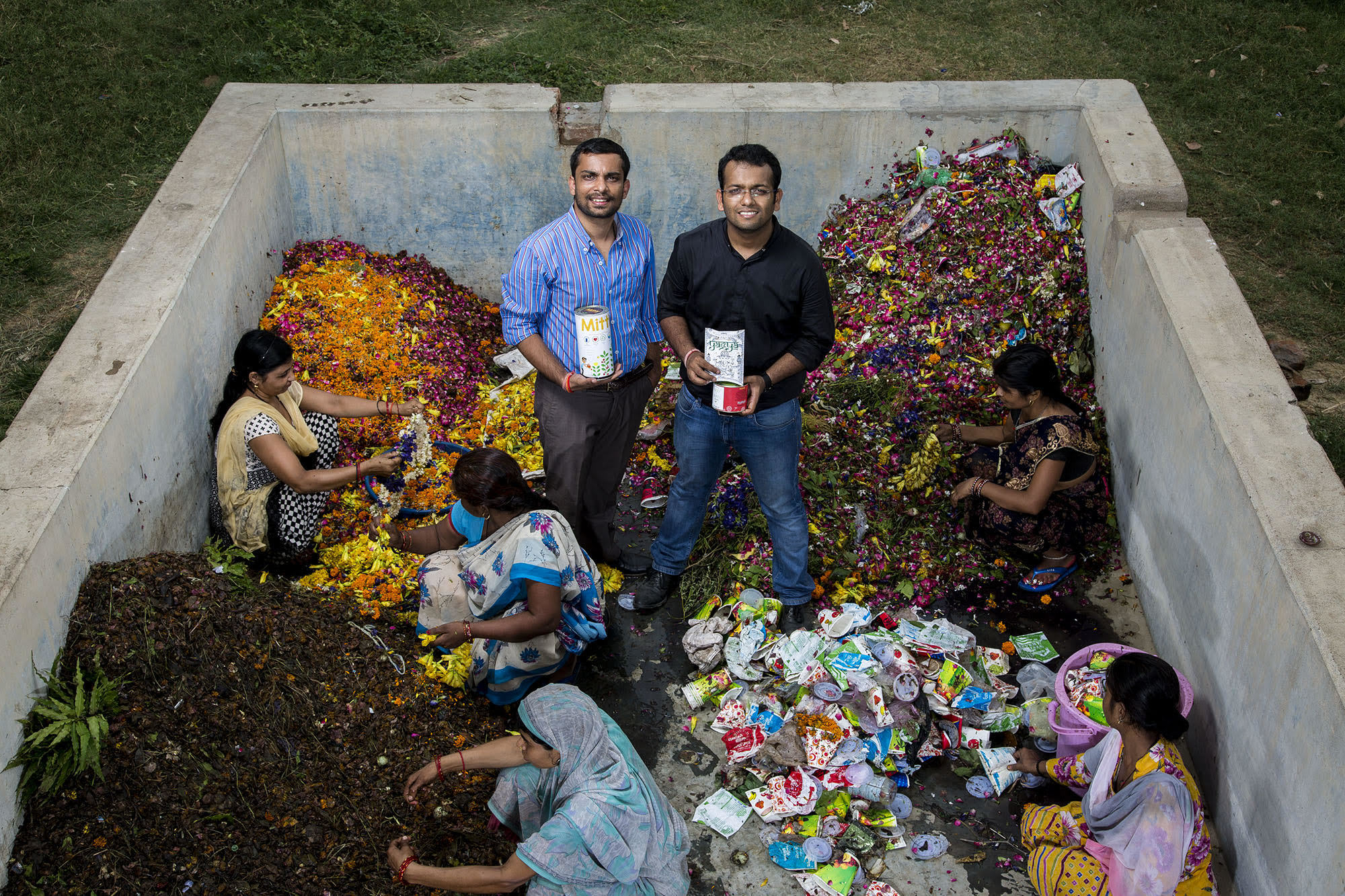
Photo Credit: Helpusgreen
Flowers used in religious practice have a sanctity, a reverence that necessitates discarding them respectfully in the water. But what worships also pollutes: the flowers contain arsenic, lead and cadmium from farm runoff. They are pumped full with pesticides and insecticides. Once in the Ganges, their thick residue dissolves to mix with chemicals and begin a rotting process that kills fish, suppresses the oxygen level, and produces compounds that reek of toxicity. The PH level is Kanpur is approximately 8.5-8.8. Helpusgreen saw an opportunity to implement its groundbreaking flowercycling technology. This converts the mass amounts of flowers found at temples and mosques around Kanpur into natural, chemical free products such as vermicompost and incense sticks.
Floral waste is estimated to account for 16% of the total river pollutant and amasses by the tons per day.
 Photo Credit: Helpusgreen
Photo Credit: Helpusgreen
But to see the problem as thereby simply solved, ignores the underlying social inequalities that still feature in Indian society. There are nearly 1.3 million manual scavengers collecting human excreta from dry latrines and sewers on a daily basis around India. In Ankit and Karen’s home state of Uttar Pradesh, there are over 17,500 households engaged in such work. It is a violation of human rights that poses extreme health risks, but it is also socially demoralizing occupation.
Manual scavengers are labeled as ‘untouchables’, committed to a cycle of poverty with extreme stigma and highly limited education avenues.
Through a two-fold solution, Helpusgreen could counter the environmental problems of temple waste and simultaneously ameliorate the livelihoods of manual scavengers who have endured much degradation. It is this type of cross-cutting solution the SDGs require. Flowercycling helps revive the Ganges by waste reduction and prevention, including product packaging that is biodegradable. Helpusgreen has “flowercycled” over 9,50,060 kilograms of waste and detoxified over 9,35 kilograms of chemical pesticide (>1000ppm or 0.1%) to date. On average, they prevent 4400 kgs waste flowers and 44 Kgs toxic chemicals from seeping into the river daily.
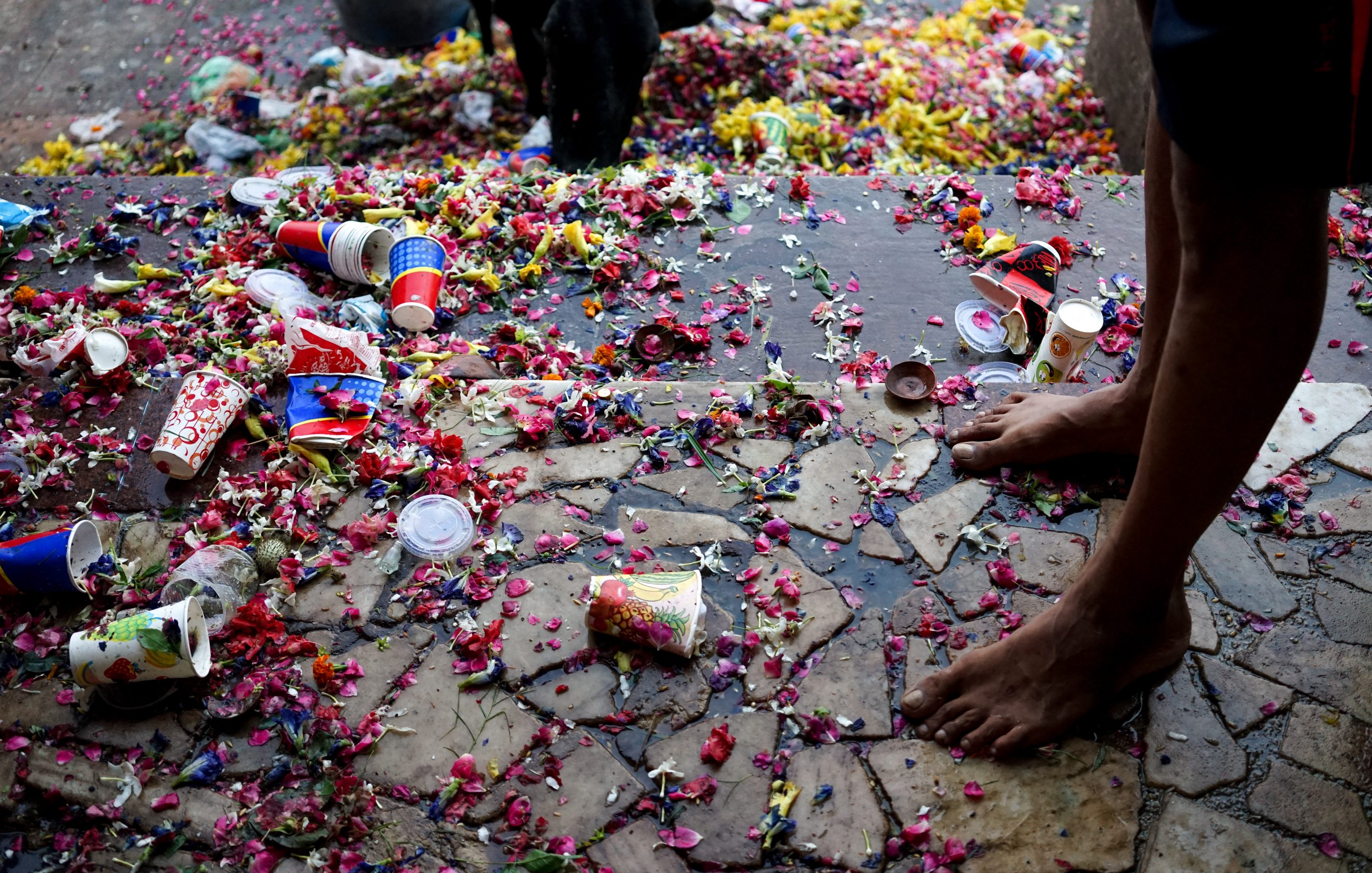
Photo Credit: Helpusgreen
At the same time the process supports the livelihoods for manual scavenger women, providing them respectable work in a disease-free environment. 77 manual scavenger women are employed full time and form self-help groups to make sure the benefits of working are not wronged by stealing or corruption. They receive Employees’ State Insurance registered with Provident Fund retirement benefits, and receive at least 7100 rupees per month (a figure that was just 10-15 a day previously). This has created a second-degree impact, as their children are increasingly attending school and/or receiving vocational jobs.
What started with the aim of purifying water and sanitation, has unrolled into a profitable social business that is protecting labor rights, empowering women, reducing pollution, and thus disease. But most importantly of all, Helpusgreen is changing mindsets about temple waste and manual scavenging. It is what Daniela Papi Thornton, a social change educator at Oxford’s Saïd Business School, calls being a, “systems change leader”. This at-the-roots engagement will allow us to make progress, not just patch the wounds.
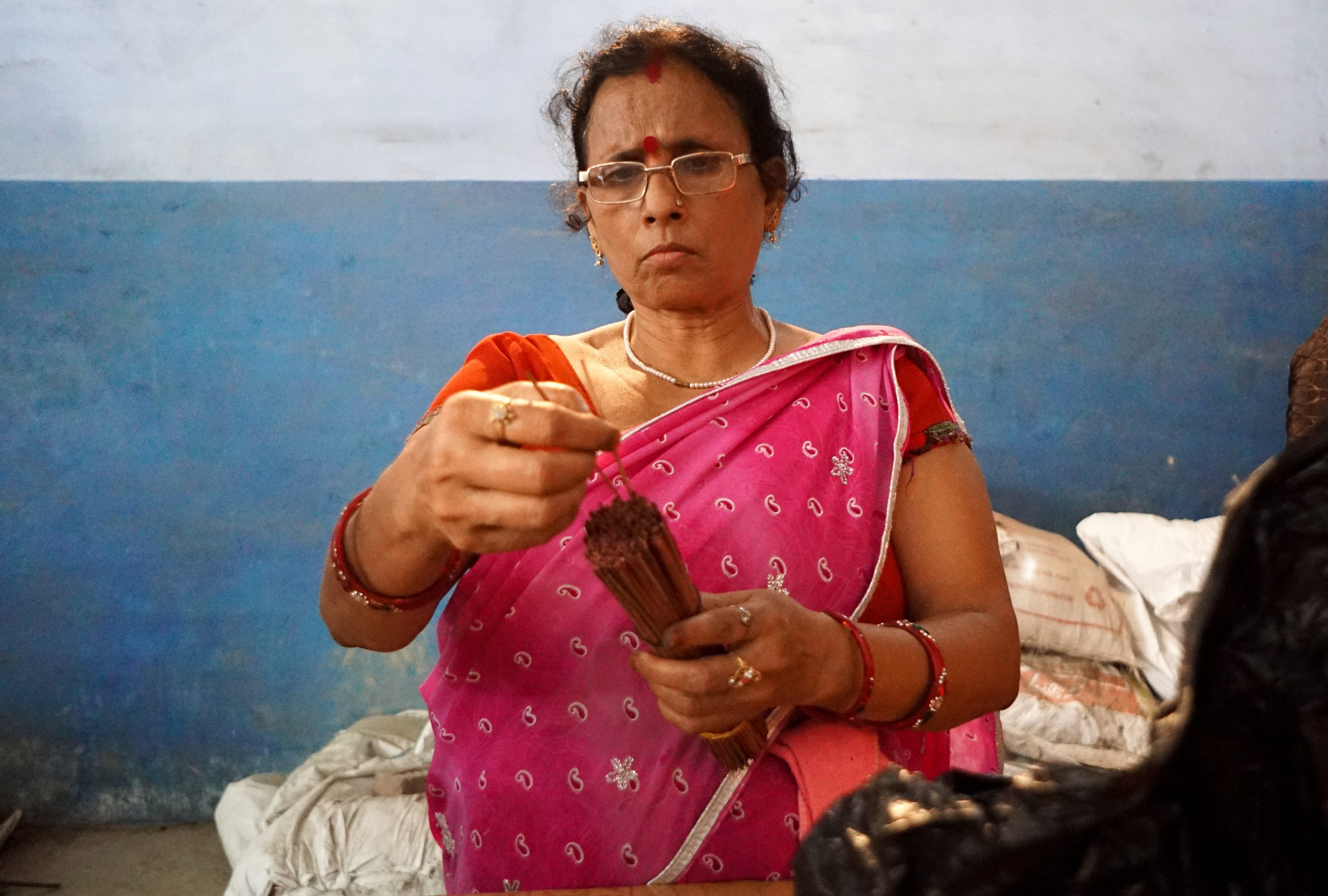
Photo Credit: Helpusgreen
Helpusgreen stands as an example for the potential of social businesses to reach further and create solutions that address diverse problems at the same time. Social impact enterprises are positioned uniquely to do this, operating in a space where ingenuity can pay off and impact investors are willing to take the risk. To further the SDGs, and make real steps to ending poverty, protecting the planet, and ensuring prosperity for all, supporting such multifaceted approach strategies is crucial.
Related Article: “Accounting for Pollution: Greening the SDGs“
The SDGs stand as the founding document to encourage today’s change-makers. The Goals must not be viewed as singular listed agenda items, but naturally integrated, symbiotic aims that lead us to build a better world. There is a weight, urgency and complicity to each SDGs; to see advancements we must support this new generation of systems change leaders.
They see beyond the obvious, and use their local contexts to delve deeply into issues so that solutions are all encompassing.
Social impact entrepreneurs, like those at Helpusgreen, are an example of this principle in action, dynamic and innovative thinkers who inspire foundational changes. In our nuanced and complex societies, we must take the time to build bridges, and keep asking ourselves what inclusive, multifaceted, paradigm-shifting solutions really look like.
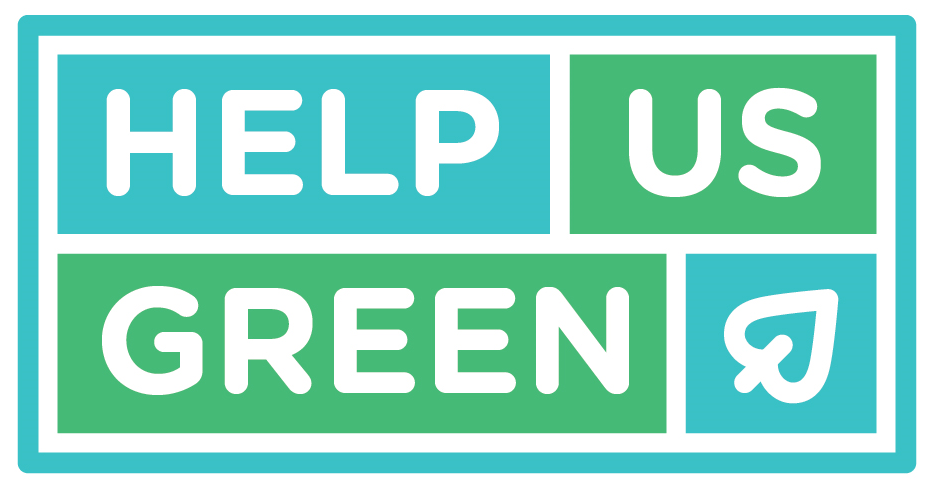
Helpusgreen® is an award winning social enterprise that preserves the river Ganges from becoming a religious sewer by flowercycling® the floral waste from places of worship into patented fertilizer and incense sticks products. We prevent pollution at its source, while also providing direct livelihoods to the manual scavenger women who craft our products in Uttar Pradesh, India.


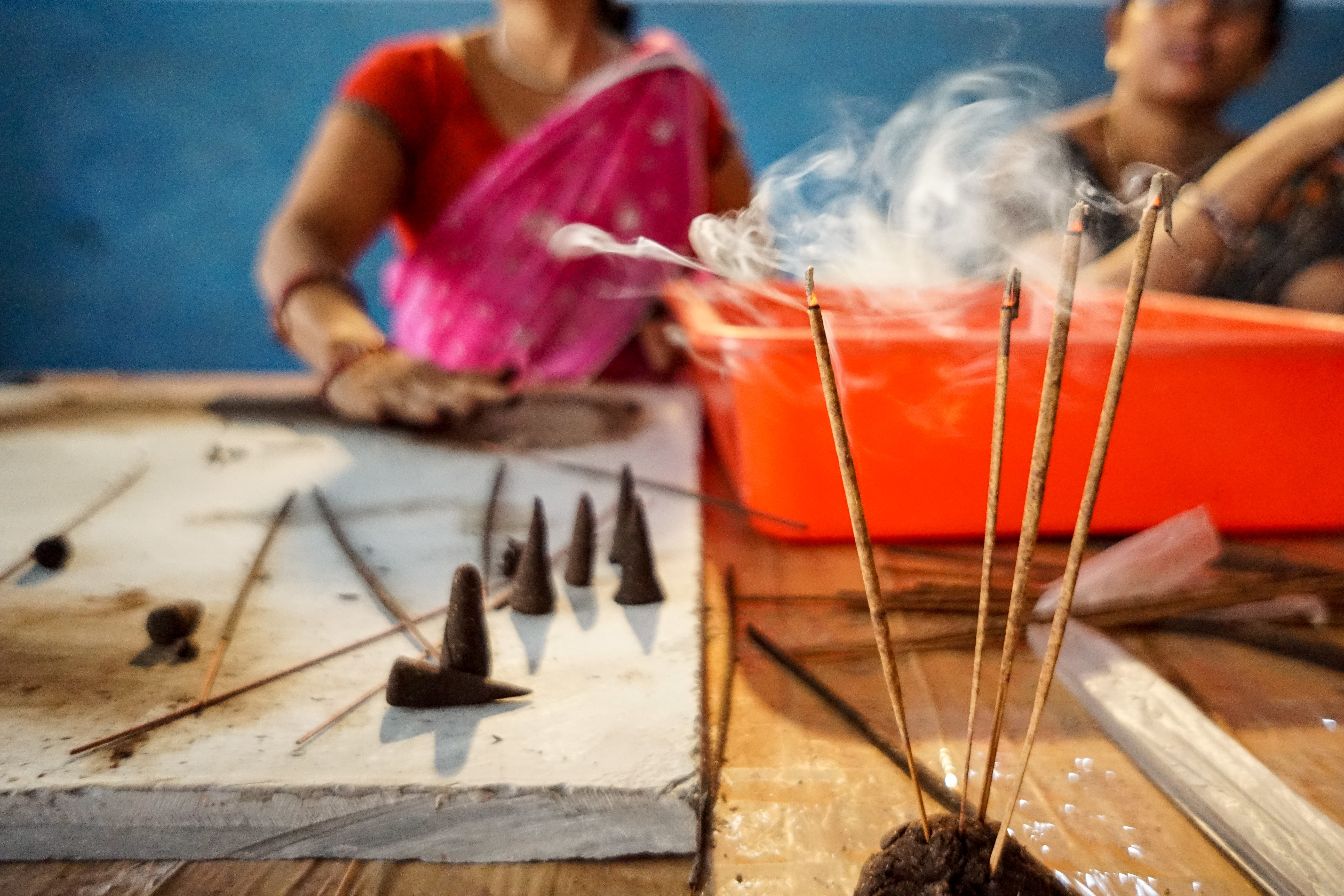
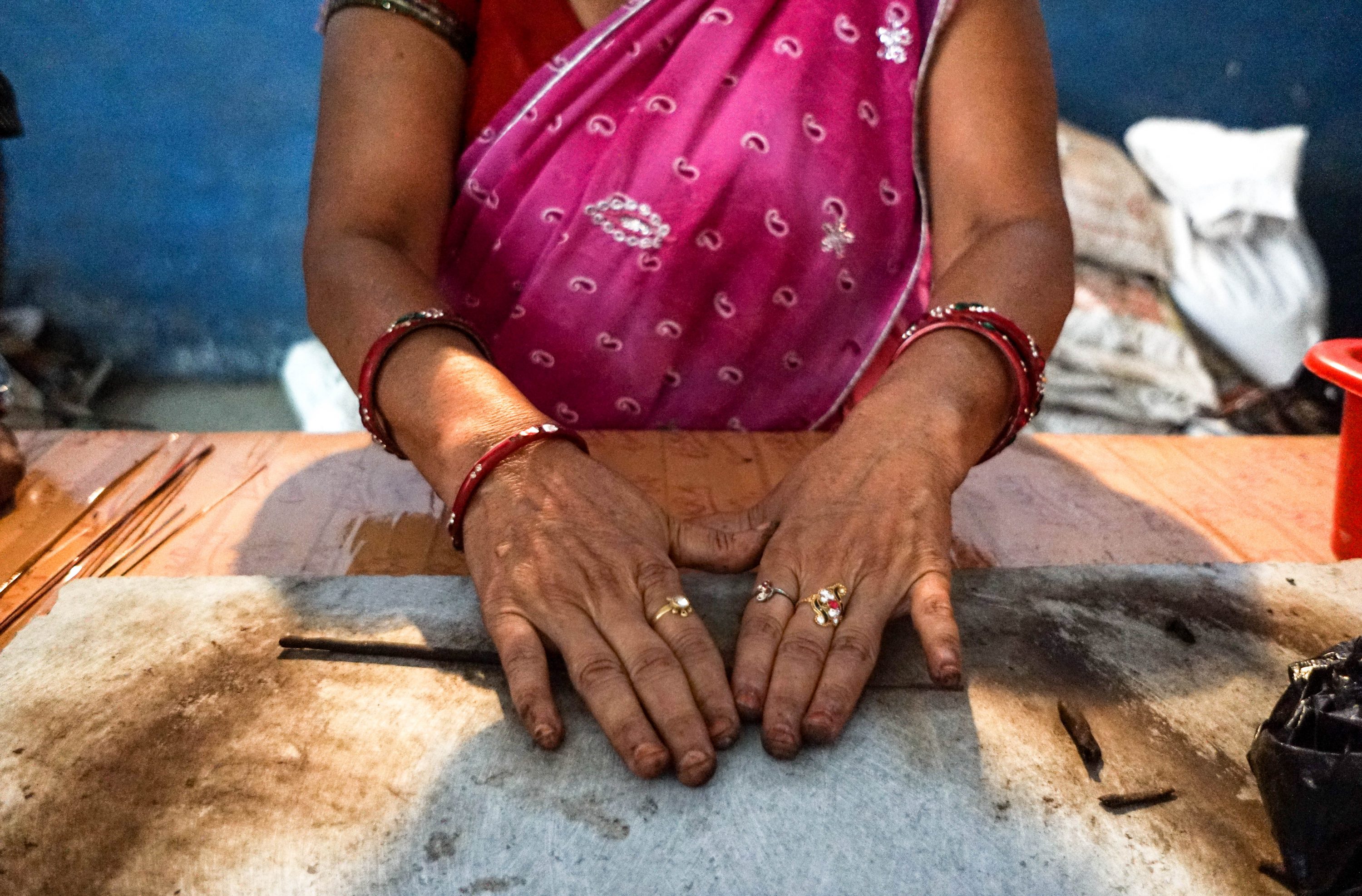 Photo Credit: Helpusgreen
Photo Credit: Helpusgreen


